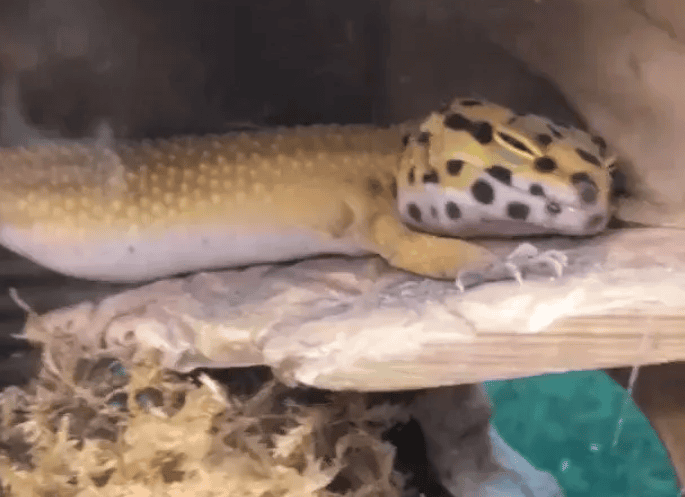It is already November, and many people are preparing to take advantage of the e-commerce sales promotion period to stock up on goods. However, for some crawler breeders, the temperature is gradually getting cooler everywhere, and the nighttime temperature in some northern areas has already reached 0 below degree.
In the hometown of leopard geckos, the temperature is also slowly dropping. Usually starting from November every year, the local temperature will begin to drop below 15℃, and gradually become lower. In some areas, the temperature can drop to below freezing due to differences in location and terrain.

In order to survive such a cold and dry period, leopard-print geckos The palace will find a relatively warm corner or crack to hibernate until the spring warms up. In the northern end of the distribution area, some of them have already entered dormancy in September; in the warmer south, they usually start to hibernate around November. In some places, leopard geckos are active throughout the winter.
Leopard geckos do not hibernate. Many articles say so, but this can easily be misunderstood.
What is actually stated is: leopard geckos do not really hibernate, but a shallower dormancy, or winterization (Brumation). In comparison, winterization is closer to "sleep", while mammalian hibernation is closer to "swoon". Of course, the winter states of different species are not the same and cannot be generalized. The leopard gecko's winter hibernation will wake up at any time according to environmental changes and external stimulation. Sometimes it will be active for a day or two, and then return to the winterizing state.
Domestic leopard geckos hibernate or not?
As mentioned before, for leopard geckos, winterization is a part of life. This process reduces their metabolism to survive the cold period. In the natural environment, the end of winterization means the arrival of the breeding season, which can stimulate the mating and reproduction of leopard geckos. Many well-known leopard gecko breeders insist on winterizing their leopard geckos. Among them is Esther, the breeder of the leopard gecko who has the longest lifespan record as mentioned in the previous article. In an interview in 2017, she said that she was still letting the then 37-year-old leopard gecko winterize normally.

 扫一扫微信交流
扫一扫微信交流
发布评论